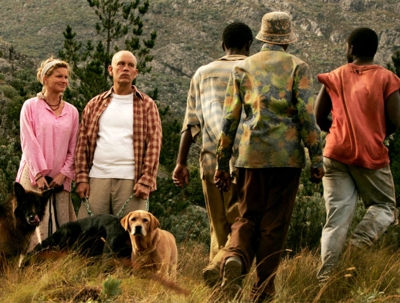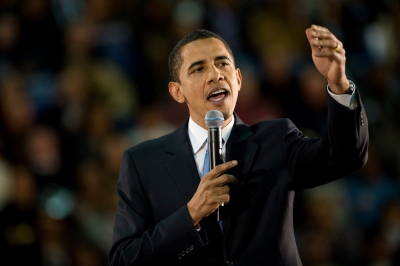Commentary
‘It wasn’t like that in the book’ is one of the commonest and most irritating responses to film versions of famous novels. Adaptation of literature to film seems to be a topic of enduring interest at every level, from foyer gossip to the most learned exegesis. Sometimes, it must be said, the former is the more entertaining, but this is no place for such frivolity.
... (read more)And now ’tis done: more durable than brass
My monument shall be, and raise its head
O’er royal pyramids: it shall not dread
Corroding rain or angry Boreas,
Nor the long lapse of immemorial time.
(Horace, Odes, III.xxx)
With what other words could one possibly begin a paper on philanthropy? Here we have the Roman poet Horace in full celebratory mode: his memorial will outlast even hard metal. What’s more, it comes at the end of the third book of Horace’s Odes, so many of which are dedicated to that legendary philanthropist Maecenas, who has given his very name to the arts of philanthropy, and who was the patron not just of Horace but also of Virgil and Propertius. Of course, then as now, Maecenas’s philanthropy was not altogether innocent, as even these poets suggest. Ultimately, the exquisite poetry of this Golden Age was in honour of the one and only emperor, Augustus, lauding his beneficence and the prosperity of his reign.
... (read more)When the National Portrait Gallery (NPG) opened in Canberra last December, more thoughtfulness was evident in its bookshop than the hang. The volumes are arranged by subject and in alphabetical order: the images accord to no principle beyond décor. Here are five writers; there, four scientists. The randomness of the whole embodies a culture of distraction. The root of this muddle is an evasion of whether the Gallery is to be guided by aesthetics or museology. The want of clarity is compounded by concern among staff not to be identified with a history museum.
... (read more)This year sees the bicentenary of Darwin’s birth and the one hundred and fiftieth anniversary of the publication of his On the Origin of Species. It also sees the two hundred and fiftieth anniversary of the birth of Robert Burns (1759–96). The media have been full of the Darwin anniversaries, but we have heard rather less about Burns, at least in Australia. Yet Burns is arguably as important as Darwin in our cultural formation.
... (read more)Baz Luhrmann’s epic film Australia may not have won any Oscars or attracted hordes of overseas tourists, but it has had at least one positive outcome. HarperCollins reissued Xavier Herbert’s equally epic Capricornia (1938), one of many acknowledged influences on the film, another being Herbert’s even longer novel, Poor Fellow My Country (1975). While visiting New Zealand recently, I was delighted to see the handsome new edition of one of Australia’s greatest novels prominently displayed in bookshops.
... (read more)It is exhilarating and always illuminating to return to Henry Lawson. His is a body of work – slim and fragile though it may be – with which many would confidently claim to be particularly familiar. ‘The Drover’s Wife’, ‘The Union Buries Its Dead’, ‘The Loaded Dog’ and many others are a part of our literary and cultural reference. Yet Lawson’s fiction is so deceptive, seemingly intuitive and ‘natural’, that it is easy to forget just how artful and crafted it is. This is one reason why the Mitchell sketches, for example, held together by a few strokes and much implication, are always potent reminders of how brilliantly and deftly Lawson managed his fiction, how spare, tremulous and scarcely visible are the structural props of his narrative, and how he merged his own experiences into a prose that powerfully transcends its autobiographical provenance. These are some of the reasons why the reissue of a collection like John Barnes’s influential and authoritative take on Lawson is welcome and timely. The addition of John Kinsella’s introduction to sit alongside Barnes’s original 1986 essay makes the whole enterprise even more attractive.
... (read more)Authenticity is a prized but rare commodity in politics. Few politicians are credited with having it to begin with; it is even more difficult to maintain during a political career. Part of the problem is that when politicians seek to understand and please the amorphous public, they generally turn to pollsters and advisers who end up scripting their words, campaigns and governing strategies. These gurus will even inform them what food is most appropriate (sandwiches with regular mustard, not Dijon, as one of Obama’s aides told him during a visit to a diner in southern Illinois). Public appearances are selected based on voter resonance, though sometimes with jarring results, as with the appearance of then New South Wales premier, the urbane non-motorist Bob Carr, at the opening of a drag-car racing track. Male politicians are told to wear earthy colours to appear more manly. Those who end up on a television debate are advised to keep away the frowns and scowls, even when their opponents twist the truth.
... (read more)In The Ghost Writer (1979), the first of the nine Philip Roth novels in which Nathan Zuckerman plays a major role, the young Zuckerman uses a family squabble over an inheritance as the basis for a short story. His father is appalled. Why would Nathan depict his own family in such an unflattering light, perpetuate negative Jewish stereotypes, and give ammunition to anti-Semites? ‘You are not somebody who writes this kind of story and then pretends it’s the truth,’ his father despairs. ‘But I did write it,’ Nathan replies. ‘I am the kind of person who writes this kind of story.’
... (read more)Traditionally, there has been an almost physical force, like a law of gravitation, making Australian literature’s visibility in the United States an elusive phenomenon. This is not, contrary to received opinion, because Australian literature did not meet world standards. It is hard to conceive of Christopher Brennan, Joseph Furphy, and John Shaw Neilson not meeting ‘world standards’. What does this mean, anyway? It seems to indicate not just that the work is of merit but that it is aware of wider literary and cultural conversations. Brennan and Furphy’s overt intertextualities show their enmeshment with global literary developments. Neilson’s cosmopolitanism, as Helen Hewson has shown, is there, but is admittedly more difficult to discern. Yet Neilson’s poetry makes demands that show that pure poetry can be as indicative of sophistication as heavily allusive verse, as in ‘Song Be Delicate’:
... (read more)My son Daniel’s African wedding took place in Lancashire – where his new Zambian in-laws live – a few days after the US presidential election. Barack Obama was not on the guest list, but his presence loomed so large that he might have been an extra, virtual, best man.
... (read more)

